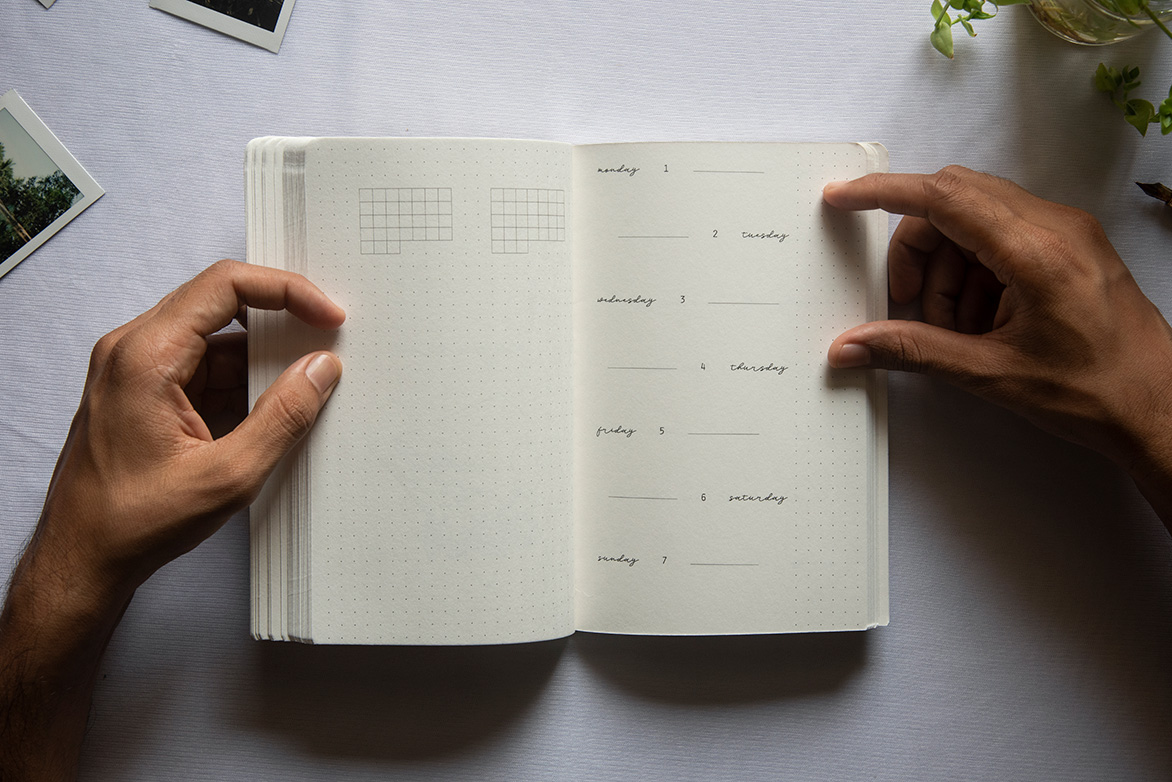Weekly Planning As An Approach
“A man who does not plan long ahead will find trouble at his door.” – Confucius
Few people have had a bigger impact on the world than Confucius, the Chinese philosopher. With wise sayings like this one, it’s easy to see why. Throughout the years, great thinkers have emphasised the importance of planning and scheduling.
Everything, from a project to a person, thrives on a solid plan. Planning is key to a comfortable and stress-free life.
So, if planning is so great, why is it so hard to do?
Well, the planning part is not hard, the execution is.
In this blog, we will talk about what weekly planning is all about, why you must do it, and how you can create it.
What Is Planning?

Planning entails deciding ahead of time what has to be done, when it should be done, how it should be done, and who will do it. It is an intellectual process that establishes a person’s objectives and determines potential courses of action for achieving those objectives. It helps you lay down strategic step-by-step instructions for achieving a specific goal.
We understand you might think that planning is a cumbersome task that requires complete focus and utmost dedication.
However, it doesn’t have to be that way!
We have chalked up an ultimate guide to planning your day and week!
Why Is Planning So Important?
According to a Harvard Business Review survey, 97 percent of senior executives agree that strategy and planning are crucial to successful leadership and the company’s future. In fact, even Jack Dorsey, the founder of tech giants like Twitter and Square, claims to have a specific weekly plan in place. Professional or not, weekly planning is almost the perfect approach to making plans.
Here are some reasons why you should create weekly plans –
1. Achieving Long Term Goals
Ever taken a ‘New Year’s resolution? How did that work out for you? You don’t have to answer that.
Most resolutions don’t work out, and disappear by February!
This is because we commit to a long-term goal without deciding the plan of action to reach that goal.
Weekly plans are a great way to achieve your yearly or long-term goals. A weekly plan allows you to create an action plan for each of the seven days of the week. You can evaluate your success at the end of the week and establish goals for the following week. This way, all you have to think about is tomorrow’s tasks, rather than fretting about the future.
2. Avoiding Burning Out
When you have a lot on your plate, you try to multitask as much as possible. You sit at a table for hours on end, straining your eyes from staring at a screen! To be honest, multitasking is a painstaking process and may or may not yield the best results.
Great leaders, from Mozart to Bill Gates, have long advocated for doing one thing at a time; otherwise, none of it gets done correctly, and you end up burned out!
Giving your all and burning out are two different things. A plan helps you perform at your optimum level and prevent burning out. A plan allows you to take breaks, refresh your thoughts once in a while, and look at things in a systematic manner.
3. Maintaining Balance

Having a weekly schedule allows you to keep your life in balance and make time for all of the important things in your life and also schedule i time for self care and decluttering activities once or twice a week.
Dividing the 24 hours of the day and using them efficiently can give you enough time to do a job, have a side hustle too, a social and personal life, and still have time to do stuff you love.
4. Keeping a Track
A written plan allows you to keep track of all of your activities, allowing you to notice errors and make corrections in the future.
It also serves as a record of chores completed so that you can go back and see where you started and how far you’ve gone in the future. Keeping track of your daily and weekly progress gives you a clear picture of where you want to go and the incentive to get there.
Now let’s get started on making a weekly plan that works best for you now that we’ve established what a weekly plan is and why it’s important to have one.
Steps To Planning Effectively
1. Define Your Goals
The first step in the planning process is to clearly define your goals. The best way to accomplish this is by simply putting your goals in writing. This is a proven way to help you plan for your success.
2. Build a Framework
After determining your goals, you need to find ways to help you accomplish your goals. Ordering all your tasks in logical order and also apportioning enough time for completion of each task will help in scheduling your activities.
3. Define Each Part of the Job
The next step is to realistically define the roles that you will take in fulfilling your goals. This step is essential because you can use this time to determine the most efficient route to do the job and avoid any redundancy.
4. Scheduling
With your goal set, it is time to start scheduling. When scheduling, it is important to plan a weekly schedule, as well as a daily schedule. The weekly schedule will help you keep up with the overall success of the project. The daily schedule, on the other hand, will help you track and measure your progress on a daily basis. It will assist you in determining whether or not you are on schedule.
Keep an eye on our page for the perfect daily and weekly planners. Designed with care to be spacious, functional and easy on your eyes our Decluttercat planners promise to be your most loyal planning companions.
We recommend that you use significant project milestones in your weekly planning but for daily planning break each milestone into the necessary parts and plan the completion of those tasks on a daily basis.
5. Analyse
Things are constantly changing around us, and this can affect our planning. One of the main aspects to planning is analysing your current plan and taking corrective action whenever necessary. You can continually evaluate your performance to ascertain whether you are on the right track or not. This is where daily and weekly planning become so critical. Take a few minutes at the middle and end of the day to evaluate your progress.

6. Review
On completion of your goal, review your planning process to determine how effective it was. This process will convey to you whether or not you have achieved an optimal planning system or if you need to be more careful while planning subsequent targets.
Conclusion
It can be difficult to come up with an effective plan that you can stick to. As a result, your plans must not only be SMART, but also enjoyable and engaging to work with. We invite you to try one of our lovingly crafted weekly planners, Reset 2025 to help you on this journey.
Since jotting down your plan in your planner is something you will see every day, make sure it is worthwhile. If you’re reading this, it’s because you want to get your life in order and work on your plans. So it’s best that you begin right now!







